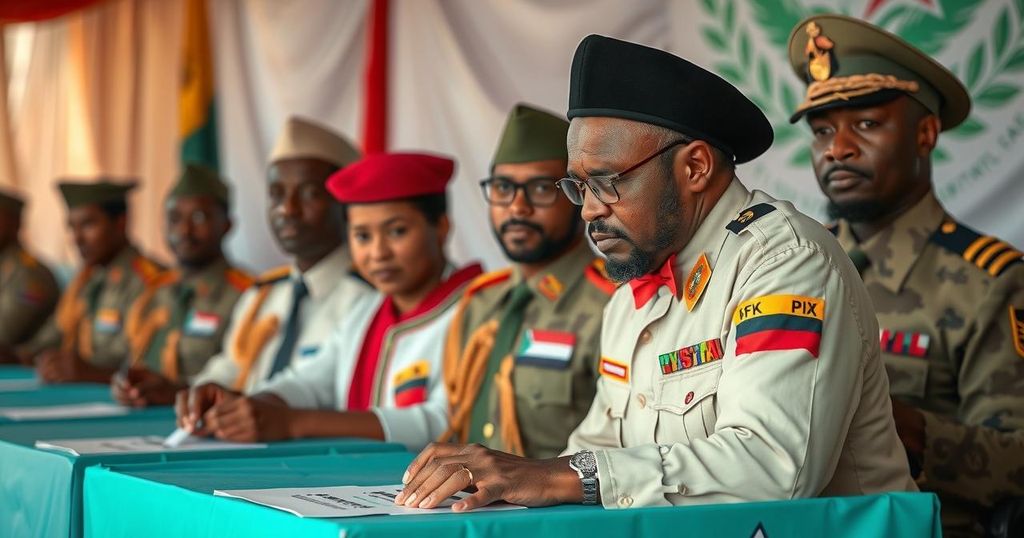Chad’s General Elections: A Step Toward Democracy Amid Opposition Boycotts

Chad conducted a general election aimed at transitioning from three years of military rule. Despite the government’s efforts to encourage voting, turnout was low, largely due to opposition-led boycotts. President Mahamat Idriss Deby Itno faces skepticism as many citizens doubt the legitimacy of the electoral process, expressing concerns over predetermined results and ongoing regional instability.
Chad held a general election on Sunday, marking a significant potential shift from three years of military governance. The government deemed the election a crucial step towards re-establishing civilian rule; however, voter turnout was anticipated to be low due to calls from opposition groups for a boycott. Initially reported figures showed only 38 percent of eligible voters casting their ballots, which election officials attributed to poor weather conditions, although the real concern seemed to stem from widespread disillusionment with the electoral process.
Opposition leader Succes Masra claimed that the majority of Chadians had heeded the boycott, suggesting that the election results had been predetermined. This situation significantly benefitted President Mahamat Idriss Deby Itno, whose administration was already positioned favorably amid claims of election fraud from the previous presidential elections. Despite calls from Deby for mass participation, many citizens voiced skepticism about the legitimacy of the votes, with some expressing feelings of futility about participating in a flawed system.
Despite the opposition’s reluctance to engage, members of the armed forces and nomadic voters had already participated in the elections the day prior, with claims of record voter turnout among these groups. Furthermore, despite local elections being presented as a critical juncture for democracy, the atmosphere was underscored by ongoing regional security threats from groups such as Boko Haram and broader political discontent. The government insists these elections are vital to transitioning back to civilian rule, following the military takeover following the previous president’s death.
In conclusion, while Chad’s government promotes the elections as a vital step toward democratization, the opposition’s calls for voter boycotts and the visible apathy among many citizens highlight significant barriers to achieving genuine democratic elections. The upcoming results will be closely monitored for their legitimacy and potential implications for Chad’s political future.
Chad has experienced a tumultuous political landscape over the past few years, particularly following the death of long-time dictator Idriss Deby in 2021. Following his death, President Mahamat Idriss Deby Itno took power through military means and has since faced significant opposition and critiques surrounding electoral integrity. The recent general elections are seen as a critical transition point, where the government seeks to transition back to civilian rule while still facing numerous challenges, including opposition dissatisfaction and regional instability from groups like Boko Haram. The call for a boycott by opposition parties reflects a deep mistrust of the political process and concern over election legitimacy.
The recent general elections in Chad signify an attempt by the government to move past military rule and establish a civilian government. However, the implications of opposition boycotts and widespread skepticism about the electoral process present significant challenges. The outcome of this election remains crucial for Chad’s political trajectory, particularly concerning public trust in governance and potential improvements in local conditions amid ongoing security and economic challenges.
Original Source: www.rfi.fr






